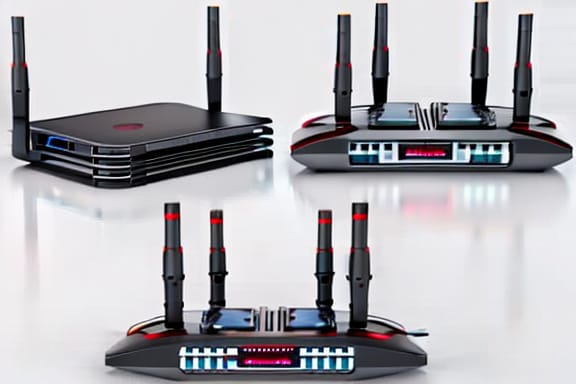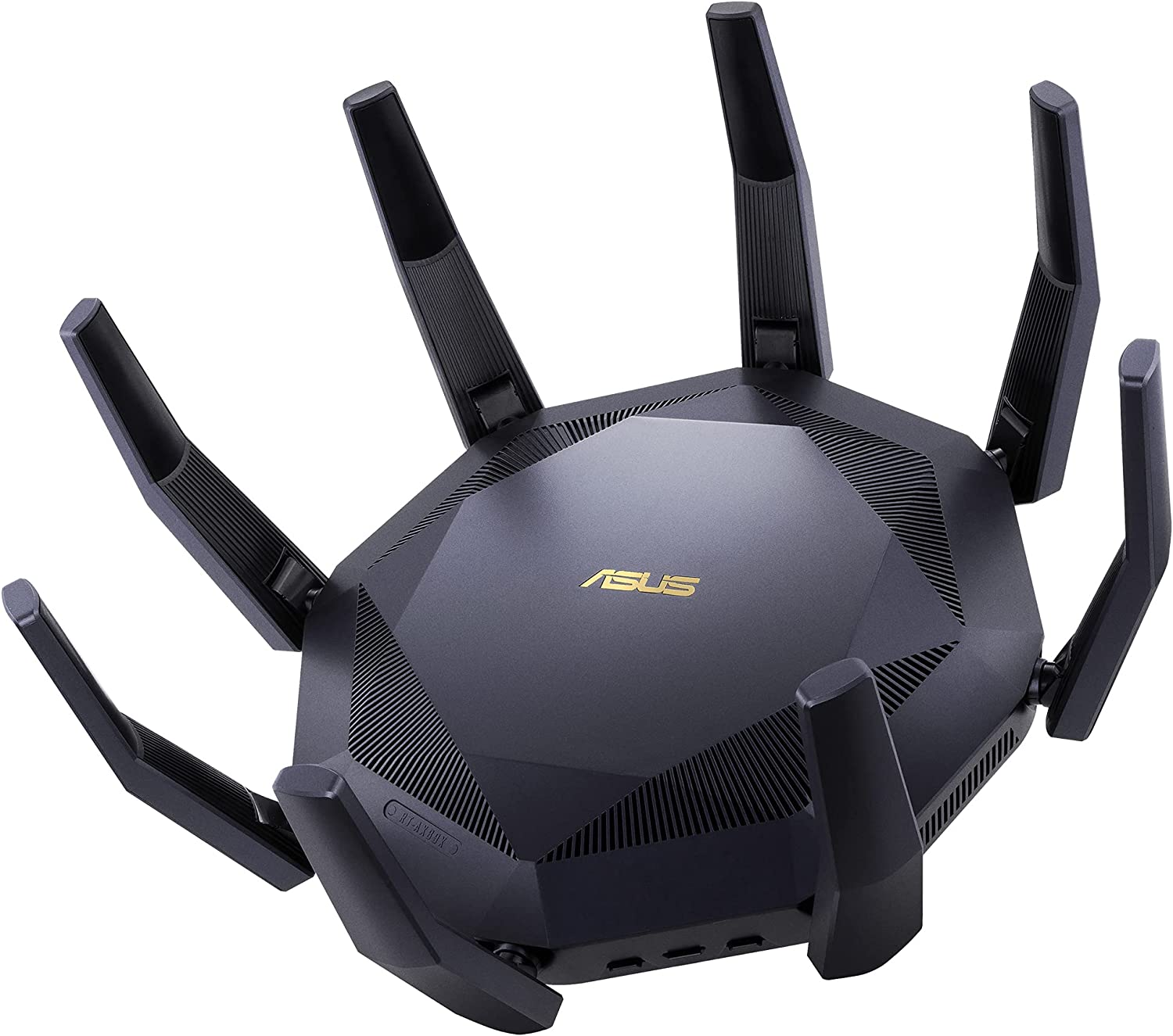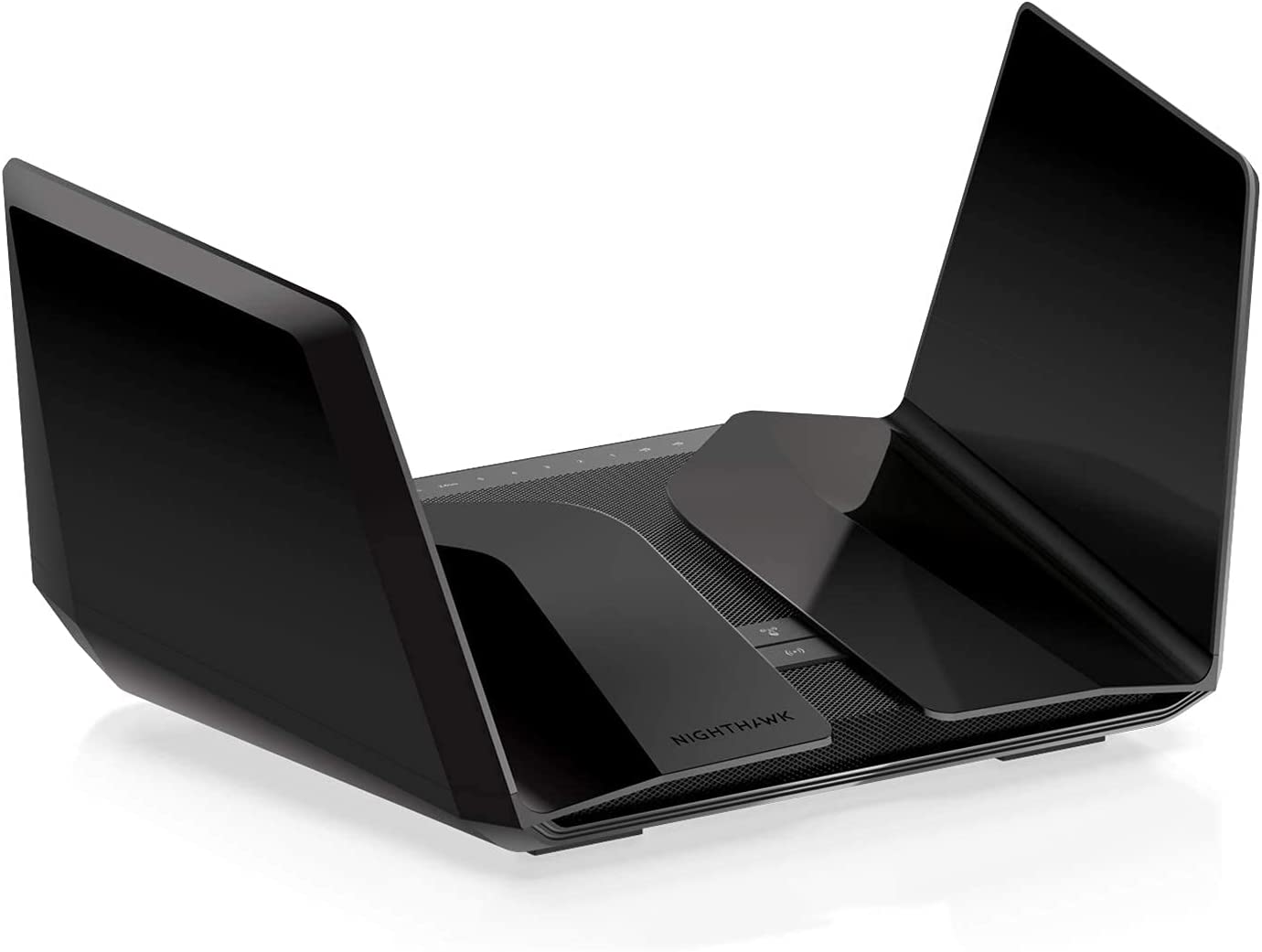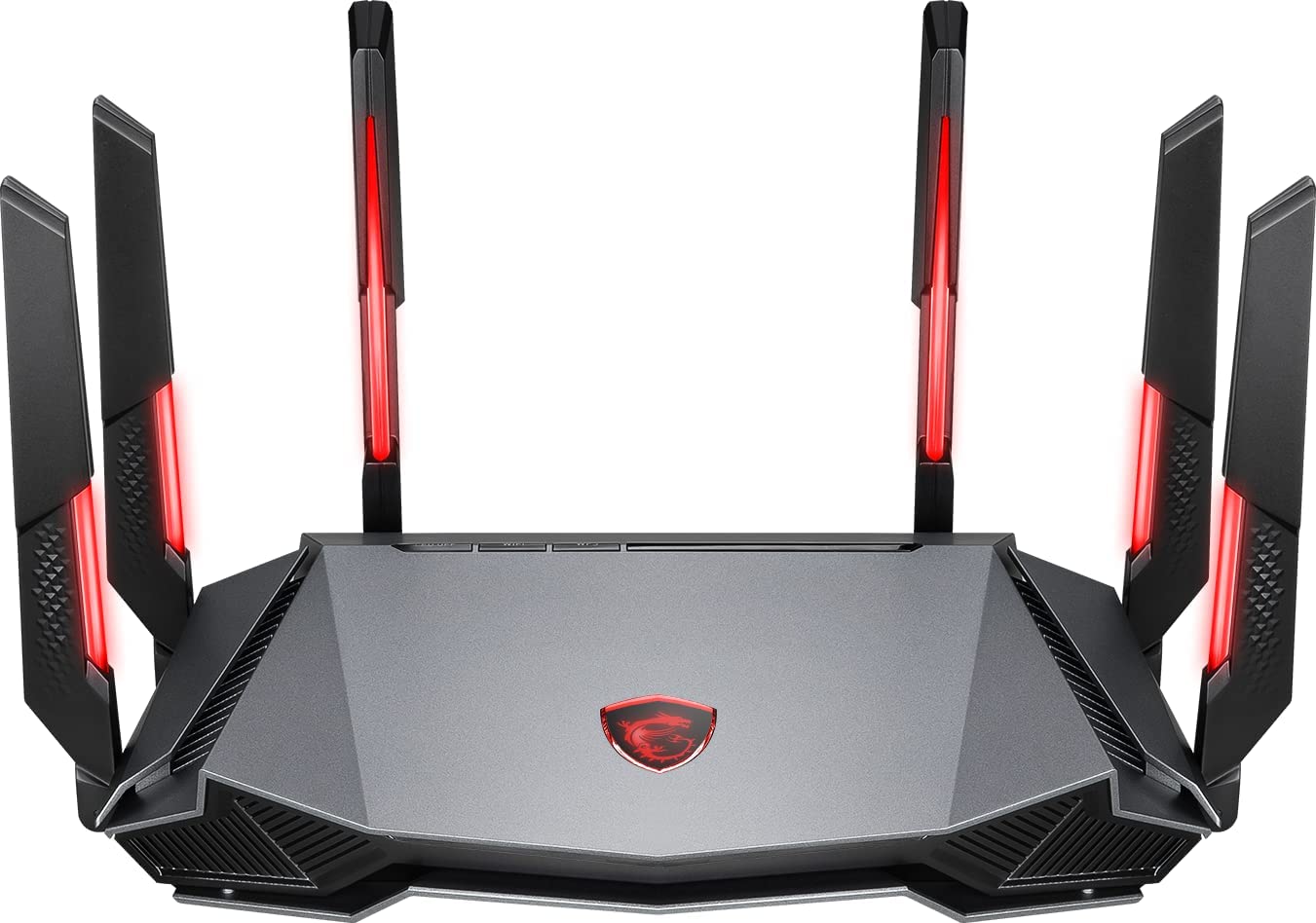The Best Routers to upgrade to

Routers are an essential part of our daily lives, providing us with access to the internet and connecting our devices to each other. A router acts as a gateway between your devices and the internet, allowing you to share files, stream media, and browse the web. There are several types of routers available, each with their unique features and capabilities.
The most common types of routers are wired and wireless routers. Wired routers use Ethernet cables to connect devices to the internet and each other, while wireless routers use Wi-Fi to connect devices without the need for cables. Wireless routers come in various types, such as single-band, dual-band, and tri-band routers. These different types of routers use different frequencies to communicate with devices and offer different speeds and performance levels. The more bands, mean more devices can connect to the router with out interference.
The top features that differentiate the types of routers include:
Speed: The speed of a router determines how fast data can be transferred between devices. Faster routers can provide better performance, especially when streaming high-definition media or playing online games.
Range: The range of a router is the distance over which it can communicate with devices. Routers with longer ranges are ideal for larger homes or spaces with multiple floors.
Security: Security features are essential for protecting your devices and data from hackers and cyber threats. Advanced security features such as VPN support, firewalls, and parental controls can help keep your network safe.
Compatibility: Some routers are designed to work with specific devices or operating systems, while others are more flexible and can work with a wide range of devices. It's essential to choose a router that is compatible with your devices to ensure optimal performance.
Here are some of the top features of the new 6e Routers.
- Increased Speed: The new 6E Wi-Fi standard offers higher speeds than previous standards. With up to 9.6 Gbps of total bandwidth, 6E routers can handle more data, faster. This means you can enjoy faster downloads, smoother streaming, and lag-free online gaming.
- Reduced Interference: One of the major advantages of the 6E standard is that it operates on the 6 GHz frequency band, which is less congested than the 2.4 GHz and 5 GHz bands used by previous Wi-Fi standards. This means less interference from other devices and networks, resulting in a more reliable and stable connection.
- Increased Capacity: With the increased number of devices in our homes, the demand for Wi-Fi capacity has increased. 6E routers offer more capacity than previous Wi-Fi standards, allowing more devices to connect to the network without impacting performance.
Future-Proofing: Upgrading to a 6E router ensures that your home network is ready for future devices and technologies that will likely require higher speeds and greater capacity. By investing in a 6E router now, you can avoid having to upgrade again in the near future.
Choosing the right router can be a daunting task, especially with the variety of features and options available. Here are some factors to consider when selecting a router:
- Number of Ports: The number of ports on a router determines how many devices you can connect to the network. If you have a large number of devices, you will need a router with more ports. There are ussually 4 or 6 or 8 ethernet ports on a router.
- USB Ports: Some routers come with USB ports, which allow you to connect external hard drives, printers, or other USB devices to your network. This feature can be particularly useful for sharing files or backing up data across multiple devices.
- 2.5 Gb Ethernet: The 2.5 Gb Ethernet standard offers faster data transfer speeds than the traditional 1 Gb Ethernet standard, allowing for faster downloads and uploads. If you have a fast internet connection or plan to transfer large files frequently, consider a router with 2.5 Gb Ethernet support.
Brand Reliability: Brand reliability is an important factor to consider when choosing a router. Look for brands with a good reputation for producing high-quality, reliable routers with good customer support. Reading reviews from other customers and experts can also help you gauge the reliability and performance of different router brands.
There are several reputable router brands on the market, each with its unique features and capabilities. Here are some of the best router brands and why they are considered reliable:
- Asus: Asus is a leading router brand known for producing high-performance routers with advanced features such as AI Mesh, which provides seamless Wi-Fi coverage throughout the home. Asus routers are also known for their reliability and longevity, with many models receiving regular firmware updates to improve performance and security.
- Netgear: Netgear is another well-known router brand that produces a range of high-performance routers for home and business use. Netgear routers are known for their easy setup and user-friendly interfaces, making them a popular choice for home users.
- TP-Link: TP-Link is a budget-friendly router brand that offers a range of routers with good performance and features for their price point. TP-Link routers are known for their ease of setup and management, making them a popular choice for users who are new to networking.
- Google Nest: Google Nest is a router brand that offers Wi-Fi mesh systems, providing seamless coverage throughout the home. Google Nest routers are known for their easy setup, user-friendly interfaces, and advanced features such as parental controls and guest Wi-Fi.
- Linksys: Linksys is a well-established router brand that offers a range of routers for home and business use. Linksys routers are known for their reliability and robustness, with many models featuring advanced features such as MU-MIMO technology for improved performance.
When choosing a router brand, it's important to consider your needs and budget. Each brand offers different features and capabilities, so it's essential to research and compare different models to find the one that best meets your needs. Look for brands that offer regular firmware updates, good customer support, and a solid reputation for producing reliable and high-quality routers.
Mesh Routers
ntroduction to Mesh Routers:
Mesh routers have emerged as a revolutionary solution to address the limitations of traditional routers in home or office network setups. Unlike regular routers, which are designed to cover a specific area with Wi-Fi signals, mesh routers offer a more robust and efficient approach to extend wireless coverage and enhance network performance.
The key difference lies in their architecture. While regular routers rely on a single device to broadcast Wi-Fi signals, mesh routers work as a network of interconnected nodes. These nodes, often referred to as "mesh points," collaborate seamlessly to create a unified Wi-Fi network with consistent coverage throughout your space.
Reasons to buy a Mesh Router:
- Expanded Coverage: Mesh routers effectively eliminate Wi-Fi dead zones by providing a seamless and continuous network connection across a larger area. The interconnected nodes ensure a strong and reliable signal, even in hard-to-reach corners of your home or office.
- Enhanced Performance: With traditional routers, the signal strength tends to weaken as you move away from the router, leading to slower speeds and connectivity issues. Mesh routers maintain consistent performance throughout the network, offering reliable internet access wherever you are.
- Scalability: Mesh routers are designed to be easily expandable. You can add more mesh points to the network as needed, making them adaptable to your growing network requirements without compromising on performance.
- Easy Setup and Management: Setting up a mesh router system is generally straightforward, often requiring user-friendly mobile apps for configuration. Additionally, many mesh routers come with centralized management features that simplify network monitoring, device prioritization, and parental controls.
- Seamless Roaming: Unlike traditional routers that require manually switching between networks when moving around, mesh routers allow devices to seamlessly roam between mesh points without interruption. This ensures a smoother online experience when transitioning between different areas of your home.
- Smart Home Integration: Many mesh routers are equipped with advanced features such as support for smart home devices and voice assistants, providing a more connected and integrated home automation experience.
In conclusion, mesh routers offer a modern and efficient solution to tackle the limitations of conventional routers. Their ability to provide extended coverage, improved performance, easy setup, scalability, seamless roaming, and smart home integration makes them an appealing choice for anyone seeking a robust and reliable Wi-Fi network throughout their living or working space.
Here are several of the top Routers to buy:
 ASUS AX6000 WiFi 6 Gaming Router (RT-AX89X) - Dual Band 12-Stream Gigabit Wireless Internet Router, Dual 10G Ports, Gaming & Streaming, AiMesh Compatible, Included Lifetime Internet Security
ASUS AX6000 WiFi 6 Gaming Router (RT-AX89X) - Dual Band 12-Stream Gigabit Wireless Internet Router, Dual 10G Ports, Gaming & Streaming, AiMesh Compatible, Included Lifetime Internet Security
 NETGEAR Nighthawk 12-Stream WiFi 6E Router (RAXE500) | AXE11000 Tri-Band Wireless Speed (Up to 10.8Gbps) |New 6GHz Band | Coverage up to 2,500 sq. ft. and 60 Devices (Renewed)
NETGEAR Nighthawk 12-Stream WiFi 6E Router (RAXE500) | AXE11000 Tri-Band Wireless Speed (Up to 10.8Gbps) |New 6GHz Band | Coverage up to 2,500 sq. ft. and 60 Devices (Renewed)
 TP-Link AXE5400 Tri-Band WiFi 6E Router (Archer AXE75)- Gigabit Wireless Internet Router, ax Router for Gaming, VPN Router, OneMesh, WPA3
TP-Link AXE5400 Tri-Band WiFi 6E Router (Archer AXE75)- Gigabit Wireless Internet Router, ax Router for Gaming, VPN Router, OneMesh, WPA3
 MSI Radix AXE6600 WiFi 6E Tri-Band Gaming Router, AI QoS, RGB, 1.8GHz Quad-Core Processor, MU-MIMO, Tri Band Gigabit Wireless, 8-Stream, High Speed Long Range Gaming Router
MSI Radix AXE6600 WiFi 6E Tri-Band Gaming Router, AI QoS, RGB, 1.8GHz Quad-Core Processor, MU-MIMO, Tri Band Gigabit Wireless, 8-Stream, High Speed Long Range Gaming Router
Mesh Routers

NETGEAR Orbi Quad-Band WiFi 6E Mesh System (RBKE963), Router with 2 Satellite Extenders, 10.8Gbps Speed, Coverage up to 9,000 sq. ft., 200 Devices, 10 Gig Internet Port, AXE11000 802.11 Axe

TP-Link Deco AXE5400 Tri-Band WiFi 6E Mesh System(Deco XE75 Pro) - 2.5G WAN/LAN Port, Covers up to 7200 Sq.Ft, Replaces WiFi Router and Extender, AI-Driven Mesh, New 6GHz Band, 3-Pack

TP-Link AX3000 Whole Home Wi-Fi 6 Mesh System (Deco X55 Pro) | Up to 6500 Sq.Ft. | 2×2.5G WAN/LAN Ports Wired Ethernet Backhaul | Ideal for 1Gig+ Internet | AI-Driven Mesh | 2023 Release (3-Pack)
Just be aware that Tp link is Chinese, and when you log in you have to log into Chinese servers just to use the routers. I prefer the Netgear with none of that nonsense and one of the few made in America.
I eventually bought the NetGear MR80, and while I generally like Netgear products, I had problems with the netgear until a firmware update sorted things out. I kinda hope for more robust menus from the admin menu for the mr80 type Netgears also. You can get these from amazon on sale refurbished for 170$ New ones go for about 300$
